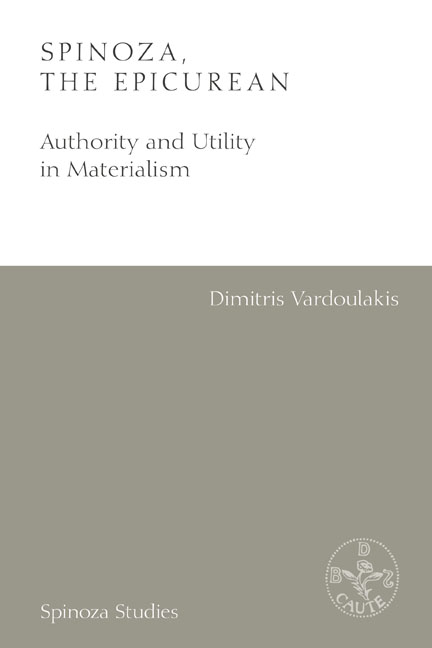Spinoza does a remarkable job in presenting the dialectic of authority and utility in the Theological Political Treatise. Not only does this revive an epicurean politics; in addition, it provides a compelling account of a democratic politics that relies on agonism. In this account, the conflict between authority and utility can never be quenched, which makes it the driver of politics. This conflict emerges as more fundamental than any form of government, or than any arrangement of representation, or than any way in which there is a separation of powers within the state.
Through this dialectic of authority and utility, Spinoza participates in the materialist tradition of modernity, not by slavishly following previous ideas but by appropriating and reformulating them. The significant contribution of the Theological Political Treatise is that it develops a typology of authority that highlights the importance of democracy for an epicurean politics. The distinction between personal authority, didactic authority and the authority to abrogate provides Spinoza with the basis to both describe and critique constituted power and to delineate a form of agonistic politics characterized by the intensification of the freedom to calculate one's utility.
Further, the reliance of Spinoza's politics on the anthropological principle – or the propensity to calculate one's utility in relation to the utility of the entire community – has a contemporary relevance that is, it seems to me, of urgent significance. There are at least three reasons that this is the case.
First, the anthropological principle, as I describe it, requires that there are two distinct, but not separate, paths to political virtue, the path of the emotions and the path of reason. It seems to me that it is hugely significant to consider a democratic politics that does not forget the import of the emotions in the construction of the political. There has been an inordinate emphasis on deliberation and process in the way that the democratic is understood. The problem with such an overreliance on reason is that it finds it hard to explain so much of the political that is dominated, for the most part, by the emotions.
